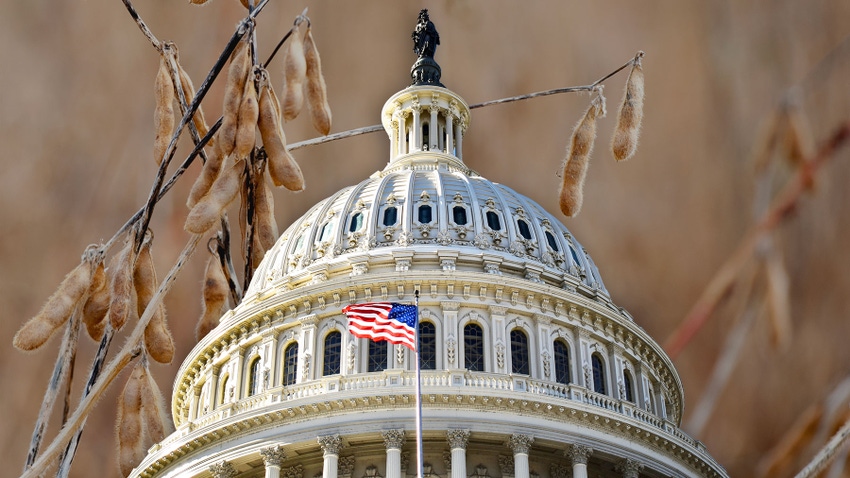September 27, 2023

by Matt Wright
When a farmer gets up in the morning, they have a lot to think about: Feed the cattle, check the weather and markets, get the kids to school on time, a midmorning meetup with the seed dealer, and an evening FFA alumni meeting.
Farming is one of the most rewarding jobs, and it’s all-consuming. That is why the checkoff is in place.
The checkoff focuses on tasks that farmers don’t have time to consider such as research, promotion and education investments. It is an extension of a family’s farming operation.
Today, U.S. Sens. Cory Booker, D-N.J., and Mike Lee, R-Utah, are leading an effort to reform agricultural checkoff programs by introducing the Opportunities for Fairness in Farming Act. Additionally, Rep. Nancy Mace, R-S.C., and Rep. Dina Titus, R-Nev., filed a companion bill in the House.
The legislation aims to impose new restrictions on checkoffs that would prohibit them from contracting with an organization that engages in lobbying, conflicts of interest, or anticompetitive activities that harm other commodities.
While billed as “checkoff reform” aimed at enhancing accountability, the bills are problematic in that they fail to recognize the extensive existing oversight of both USDA and the organizations that administer agriculture checkoffs.
In addition to the Opportunities for Fairness in Farming Act, Rep. Victoria Spartz, R-Ind., filed an amendment to the House Agriculture, Rural Development, Food and Drug Administration appropriations bill that would eliminate funding for USDA to administer national agriculture promotion programs.
Producers need to remember is that it’s easy for policymakers to sit in their seats in D.C., thousands of miles away from a farm and manual labor. They aren’t part of your farm. They don’t know your needs, and they are implementing yet another policy that impairs your right to farm.
Despite the anti-checkoff sentiment in D.C., the agriculture industry has champions who understand producer checkoff programs are a valuable tool in building new demand and educating on issues that affect the future of farming. In fact, Rep. Barry Moore, R-Ala., and two dozen bipartisan representatives filed a resolution in support of commodity checkoffs.
Today, the soybean checkoff is governed by 77 farmer-leaders from across the country with one common goal: increasing return on investment for all U.S. soybean farmers.
The checkoff accomplishes this by researching production practices, working with the supply chain, and finding new markets domestically and abroad for soy oil and meal. The soy checkoff is working for a successful future of U.S. soybean farmers when investing its funds for maximum return on investment.
Stewardship of the funds collected from farmers is a top priority for the farmer board (appointed by the U.S. secretary of agriculture), staff and affiliated entities.
Soybean checkoff programs allow farmers to invest in opportunities that enhance markets and the overall value of soybeans. For every dollar a farmer invests in the soy checkoff, they receive a $12.34 return on investment through the results of the national checkoff — United Soybean Board — promotion, research and education.
The Missouri Soybean Merchandising Council has a rich history of devoting dollars to innovative research projects that aid the future farmer. The organization will continue to devote time and research to Soyleic soybeans, biodiesel, soy-based protein and infrastructure. As the soybean checkoff continues to position U.S. soy for the future, this work will help influence how the world perceives the value of domestic soy and soy products.
I urge you to reject Spartz’s amendment, which threatens the viability of these successful producer-led, producer-funded programs that benefit agriculture and all of us. Research and promotion boards —checkoffs — support efforts to develop new markets and strengthen existing markets for specific commodities while conducting important research and promotional activities via pooled resources and stakeholder investments.
Her amendment is alarming news and in direct contrast to the congressional resolution filed just days before by Moore and 30 bipartisan representatives expressing House support of commodity checkoffs.
The next time the farmer goes to their local grain elevator, and wonders where one-half of 1% of their paycheck went, know that it went to an investment in the family farm. It’s an investment in tools, insights and research needed to be effective today and decades to come.
A little soybean checkoff history
In 1991, U.S. soybean farmers created the national soybean checkoff. Congress passed a provision as part of the 1990 Farm Bill to form the checkoff at the request of soybean farmers throughout the nation. The law required a referendum in 1994 to determine if the national checkoff should continue, and producers voted to continue the program. Now, every five years farmers are asked to vote on the checkoff.
The last Request for Referendum was in May 2019. Only 708 farmers requested a referendum, representing 0.13% of all eligible soybean farmers. This fell far short of the 10% needed to prompt a referendum, showing resounding support for the soy checkoff.
Wright is president of the Missouri Soybean Association.
You May Also Like




